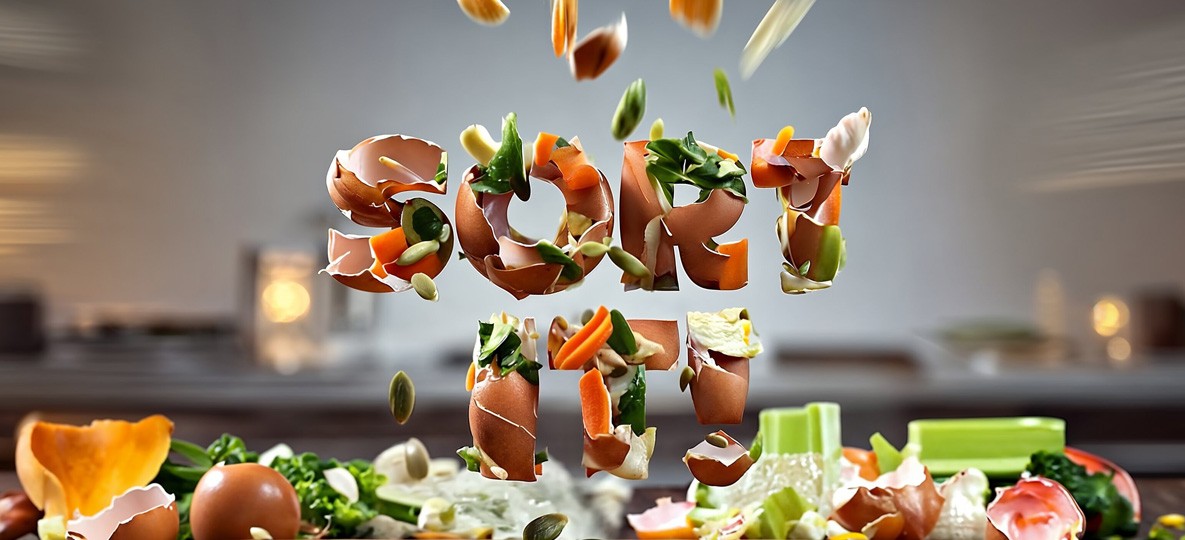
All food waste — both raw and cooked, including meat, fish (and bones), plate scrapings, bread, cakes, dairy products, eggshells, fruit and vegetable peelings, and out-of-date food (just remove any packaging first)
Coffee grounds & tea bags, as well as coffee filters, provided they’re paper - but plastic-containing filters should go in general waste
Food-soiled paper items - like napkins, paper towels, food-stained sections of pizza boxes
Light garden waste - grass clippings, small twigs, cut flowers, and plant trimmings
Certified compostable packaging - such as compostable cups, bowls, and cutlery (look for the EN 13432 / ‘Seedling’ certification)
Environmental Impact:
Diverting food waste from landfill drops methane emissions and helps protect ecosystems. Composting alongside anaerobic digestion turns waste into valuable compost and even green energy
Circular Economy Benefits:
By recycling organic waste, you help create compost essential for farming, landscaping, community gardens - closing the loop on a circular, sustainable economy
Compliance & Accessibility:
Since January 2024, every household in Ireland is entitled to a brown bin for food and garden waste. This change makes participation easier and helps meet national recycling targets
Cost Savings:
Less general waste means lower disposal costs - your brown bin helps keep black bin charges down. Also, forming good habits like separating waste can reduce overall waste production
Avoid Contamination:
Over 50% of household food waste in Ireland ends up in the wrong bin. Recycling correctly ensures it goes where it belongs - helping cut contamination and improving recycling efficiency
Set up a mini-system at home:
Use three separate bins inside (food, recycling, general waste). Keep the brown bin handy; make general waste harder to reach to encourage recycling
Use labels and visuals:
Label each bin with pictures or simple words to avoid confusion - even early mornings will go smoothly
Create ownership and awareness:
Assign someone to manage the bins - this fosters care, accountability, and minimises contamination
Track your progress:
Keep a visual log of how much you’re recycling - use our app!
Clean & maintain your bin:
Rinse occasionally with vinegar or newspaper liners to reduce odours and keep pests away.
Step 1: Collect food scraps, coffee grounds, soiled paper, small garden cuttings - just avoid packaging, plastics, and oils.
Step 2: Confirm everything is compostable - look for EN 13432 certification.
Step 3: Dump everything into your brown bin and keep it well-organised.
Step 4: Watch for collection day, and take pride in making a positive impact!
By adopting these simple practices, you’re not just maintaining a cleaner kitchen - you’re part of a greener solution that benefits your community, environment, and pocket.